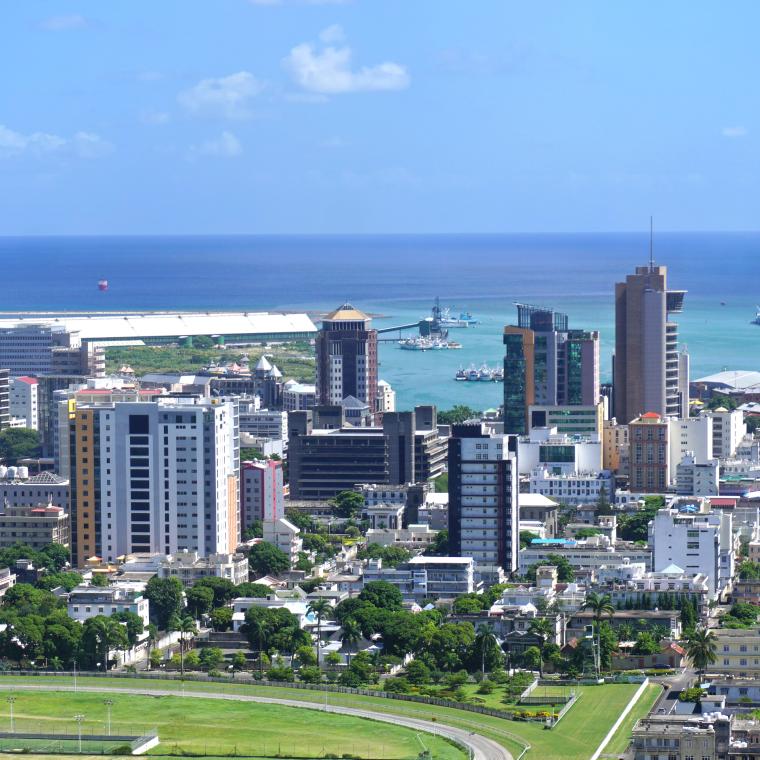
With scores of jurisdictions to choose from around the world, finding the one that will best meet your trust needs can be a challenge – but there are five key factors that can help with the decision, explains Ada Ling, Director.
Over decades, trusts have built an enviable reputation around the world as a key strategic tool for asset protection and succession planning. In their many guises – from Singapore’s private family trusts to Jersey’s discretionary trusts – they offer parties the benefit of flexibility, robust financial planning, and the potential for a smooth succession from one generation to the next.
In light of the Covid pandemic and ongoing economic and geopolitical uncertainty, these are characteristics that are particularly appealing to people who want to protect their wealth both now and for the future.
Choosing the best jurisdiction to establish a trust, however, can be a challenge – the Society of Trust and Estate Practitioners (STEP) reports on more than 60 jurisdictions worldwide. This means a lot of thought – and time – has to go into deciding which to use.
This very subject was explored in a past webinar of ours 'How to choose the right jurisdiction for your trust’. This is a critical matter for anyone setting up a trust – as well as those advising clients on where to put their wealth.
While any final choice will depend on the personal circumstances and priorities of the trust settlor, here are five key factors the panellists said should be considered when selecting a location for a trust.
Flexible & robust trust legislation
Anyone settling their assets in a trust will need reassurance that the jurisdiction’s trust legislation is sufficiently robust to protect their interests, yet flexible enough to keep pace with their changing needs.
“Not all jurisdictions include the special provisions that are included in places like Jersey and Cayman,” said Andrew Miller, Partner at Bedell Cristin in the Cayman Islands. “These include the ability to reserve powers to the settlor or some other person, such as a protector; control over things like income and capital; adding and removing beneficiaries; and, indeed, if one becomes dissatisfied with one’s trustee, removing and replacing the trustee.”
Miller also highlighted how, in Cayman for instance, there is specific legislation dealing with protection from creditors – the Fraudulent Dispositions Law – which prevents claims once assets are transferred into a trust or other such structure. It is these types of jurisdiction specific benefits that settlors (and advisers) should look for when choosing where to establish a trust.
A stable, reliable legal system
People put assets into trusts for several reasons. Whatever the motive, however, continuity often plays a critical part – settlors want their wealth to pass securely down through generations.
It’s important, therefore, to choose an autonomous jurisdiction with a strong and stable legal system of its own. Cayman, Singapore and Jersey, for example, all have very well developed legal and judicial systems, rooted in English common law.
Webinar panellist Mike Tan, Executive Director of JP Morgan Private Banking Asia’s Wealth Advisory Group, highlighted the efficiency of Singapore’s stable and transparent legal system when it comes to handling disputes. He noted that, despite the impact of Covid, the case clearance rate at Singapore’s Supreme Court in 2020 was actually 96%.
“That indicates the efficiency and effectiveness of Singapore’s legal system. This is very important in the event that there are any disputes or any resolutions that are needed, and the court system is being called upon to make a decision on the issue.”
Regulation & compliance
The right jurisdiction will have a highly developed regulatory compliance framework in areas such as anti-money-laundering and know your client, striking the balance, as places like Cayman and Jersey do, between appropriate protection and freedom to operate, and between privacy and reputation.
Global tax authorities and regulators, and indeed the general public, have been putting wealthy individuals under increased scrutiny since the financial crisis in 2008. “Nobody wants to have their trust in a jurisdiction which becomes some sort of international pariah,” said Miller.
Depth of expertise
A strong trust jurisdiction offers a wealth of high-quality service providers, with people experienced and skilled in key fields like trusts, law, philanthropy and beyond.
Nancy Chien, Partner and Head of International Private Client at Bedell Cristin in Jersey, pointed out that, of the 100,000 people living in Jersey, around 15,000 work in financial services.
“These experienced professionals will have rich relationships with other skilled parties in the broader financial world,” she said. “Meaning they’ll be able to connect to a wealth of local ancillary services, from top accountants and major law firms to corporate and fiduciary providers and major international banks.”
Conrad Proud, Client Director within Ocorian’s trust services team in the Cayman Islands explained how this network can be key to choosing a jurisdiction. “For planners and advisers, it’s ultimately their reputation with clients that’s at stake when looking to bring in trust professionals,” he said. “So, it's important to choose both the right jurisdiction and the right trustee.”
Ease of doing business
Trusts are long-term arrangements, so dealing with trustees really should be straightforward and convenient. Consider the language of doing business, for example. While English is spoken in places like Jersey, Cayman and Singapore, the latter is a multilingual jurisdiction where Mandarin and other Asian languages are widely spoken too.
Then there’s the issue of time zones. While Singapore’s may be the most convenient for Asia-based clients, it’s worth considering the ease with which collaboration can occur around the world. Jersey’s central time zone, almost equally behind Asia and ahead of the US, makes it easy to deal with the intermediaries on the island.
And while Jersey is physically very close to London and the European markets, Cayman is well connected with the US and Canada, and just over an hour’s flight from Miami. These are all practical considerations when setting up a trust.
The right jurisdiction for your trust is already out there
As the choice of potential trust jurisdictions is so great, the right jurisdiction – one that’s politically and legally stable and tax compliant, with deep professional expertise and robust and flexible trust laws – is certainly out there.
Take time to consider the jurisdiction that best fits your, or your clients’, needs. That way you (or they) can benefit fully from the vast range of wealth advantages that trusts deliver.
View the webinar ‘How to choose the right jurisdiction for your trust’ here.
We offer private client services in Singapore, Jersey, the Cayman Islands, and a wealth of other key strategic jurisdictions. For more help choosing the best location for your trust, contact us.


